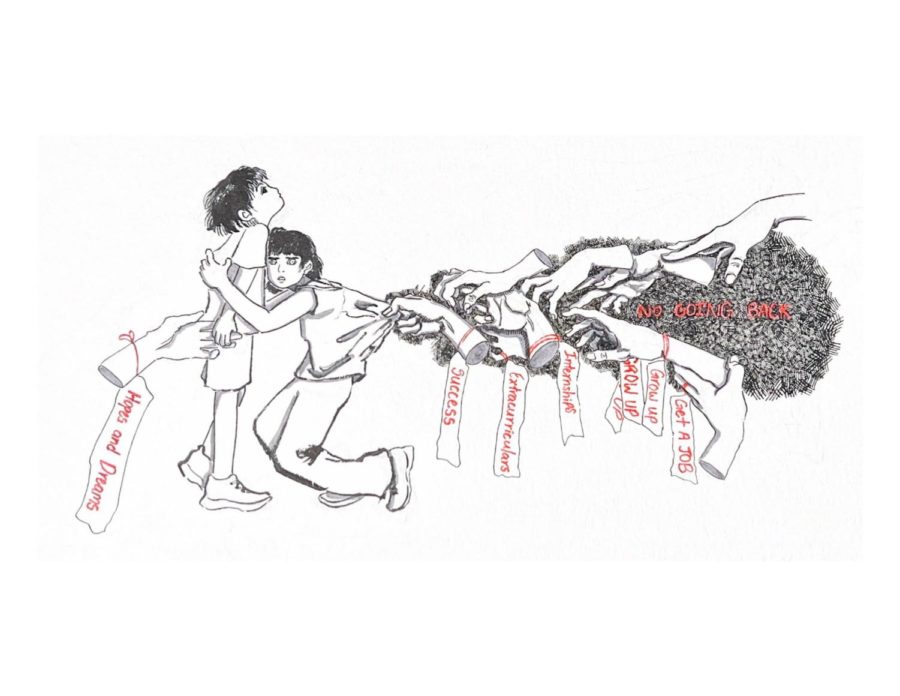Following Richard J. Daley’s victory in the 1955 mayoral election, Alderman Paddy Bauler uttered a line that has since become a Chicago proverb: “Chicago ain’t ready for reform.” These past few months’ headlines—from an alderman trading votes for Viagra to the repeated use of the phrase “Burger King shakedown,” certainly suggest that not much has changed. This culture of corruption has become an accepted part of the city’s political culture, with crooked aldermen romanticized as just another classic Chicago quirk—“don’t put ketchup on your hot dog,” “it’s not called the Windy City because of the wind,” and, of course, “vote early and vote often.”
Forgotten amid the cynical laughter about the “Chicago way” are the details of what Bauler actually said. While countless publications have shortened it to the catchy, timeless “Chicago ain’t ready for reform,” the full quote is actually a little more nuanced. He said “Chicago ain’t ready for reform yet,” celebrating Daley’s victory over a reform-minded opponent. The extra adverb shifts the meaning of the phrase from a grand proclamation about an element of the city’s DNA to an observation about reform’s dim prospects in 1955. And quite crucially, his use of “yet” suggests that Chicago may be ready for reform in the future. Last week’s election results, in fact, provide a glimmer of hope: Chicago may finally be ready for reform.
The most obvious reason for optimism is the mayor’s race, in which Toni Preckwinkle and Lori Lightfoot advanced to the runoff. Both candidates ran on unapologetically left-wing platforms, promising to raise the minimum wage, reform the Chicago Police Department (CPD), and halt the expansion of charter schools. While legitimate questions exist about Lightfoot’s commitment to police accountability and Preckwinkle’s ties to figures like Alderman Ed Burke, both campaigned and won as progressive reformers, and both are already making the case that they’re the more progressive candidate in the runoff—a refreshing change after eight years of Rahm.
Contrast their performance to that of candidates like Bill Daley, Garry McCarthy, and Paul Vallas. Daley was the candidate of financial austerity, advocating for an amendment to the state constitution to cut pensions for public workers. McCarthy, the former head of the CPD, represented the opposition to any efforts to reform CPD. Vallas is the former CEO of Chicago Public Schools, where he led an aggressive expansion of charter schools. All three saw disappointing results Tuesday night: Daley missed the runoff, Vallas didn’t win a single ward, and McCarthy didn’t even win a single precinct.
But the mayoral race wasn’t the only glimmer of hope for progressives. Across the city, left-wing challengers performed well, even forcing several entrenched incumbents into runoff elections. While they haven’t won yet, these results show that activist movements—even in Chicago—have the strength to challenge established politicians and perhaps change what happens at City Hall.
Two of the most remarkable performances came from Byron Sigcho-Lopez in the 25th Ward and Jeanette Taylor in the 20th Ward. Sigcho-Lopez, an organizer with the Pilsen Alliance, touted his anti-gentrification work with the Alliance and pledged to institute a transparent, participatory zoning process for the ward. Most of the 25th Ward is in Pilsen, a historic Mexican community that has been heavily gentrified in recent years. Sigcho-Lopez won almost 30 percent of the vote and should be favored in the runoff against Alex Acevedo, son of State Representative Eddie Acevedo and the favored candidate of several large developers.
Taylor also won close to 30 percent of the vote in the 20th Ward, which includes most of Woodlawn and parts of Washington Park, Englewood, and Back of the Yards. Taylor is a longtime organizer and activist from Woodlawn. She helped lead a hunger strike that stopped Rahm’s attempt to close Dyett High School in Washington Park, and has since been involved in the trauma center campaign and the Obama Center community benefits agreement (CBA) effort. She’ll head to a runoff with consultant Nicole Johnson, who has the support of several major donors connected to the University of Chicago, as well as Chance the Rapper.
In a few other races, incumbent aldermen were held just below 50 percent of votes, forcing them into an April runoff. In the Fifth Ward, which includes most of Hyde Park and South Shore, incumbent Alderman Leslie Hairston will go to a runoff for the first time in 20 years. While she still won 49 percent of the vote, she now faces a difficult battle with Will Calloway, the community organizer who helped secure the release of the video of Laquan McDonald’s murder. Calloway has already won the support of Gabriel Piemonte, who finished third—their combined share of the vote barely outweighs Hairston’s. In the 15th Ward, incumbent Alderman Ray Lopez faces a similar situation: Lopez won 49 percent of the vote, but still has to win a runoff against progressive challenger Rafa Yañez, with most of the support for third-place challenger Berto Aguayo expected to flow to Yañez in the runoff.
However, news for progressives wasn’t uniformly positive—Alderman Ed Burke of the 14th Ward, recently indicted on federal corruption charges, still managed to avoid a runoff, while several other incumbent aldermen beat progressive challengers with little difficulty. Even amidst these disappointing cases, however, there were some positive signs. While Burke still won, his 54 percent was his worst performance in his 40 years as alderman of the 14th Ward. Progressive challengers fell short in the 12th Ward, but a referendum on a community benefits agreement for the controversial El Paseo Trail passed with over 85 percent of the vote. While challenging established politicians is always an uphill battle, especially in Chicago, this year’s elections offer a reason to keep fighting.
Sam Joyce is a third-year in the College.








